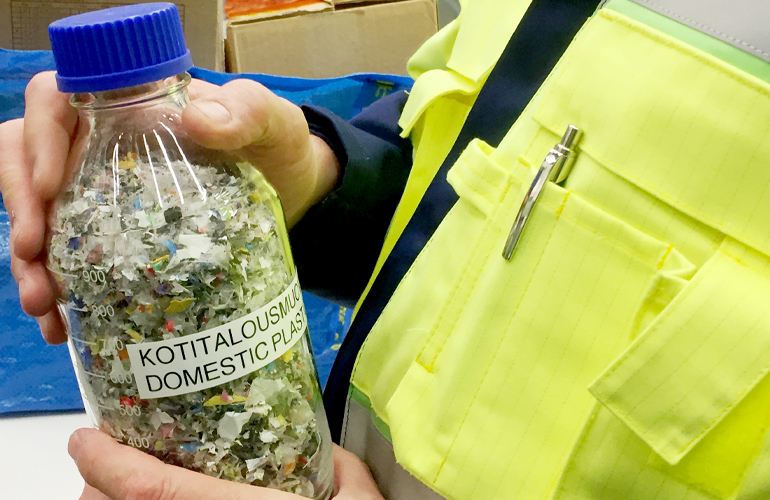
5 Steps to Build an Effective CSR Strategy
In today’s business landscape, Corporate Social Responsibility (CSR) has evolved from being a “nice-to-have” to ...

This was the first time Neste processed liquefied waste plastic at an industrial scale. During the run, packaging and mixed waste plastics were upgraded into high-quality recycled feedstock for petrochemical industry uses, e.g. for the production of new plastics.
The processing run marks a very important milestone with regards to Neste’s strategic aims of driving circular economy and replacing crude oil use at its own refineries. Neste’s target is to process over 1 million t of waste plastic annually from 2030 onwards.
Neste aims to increase the volumes of liquefied waste plastic processing gradually to continue learning and developing the value chains and processing technologies. The next processing runs at Neste’s fossil oil refinery in Porvoo are already being prepared for 2021.
“We are very excited to have successfully completed our very first industrial-scale processing run with liquefied waste plastic. While there is still a lot of work to be done, this is a huge step for our industry towards turning hard-to-recycle plastics from waste to a valuable resource, making circularity a reality,” said Mercedes Alonso, Executive Vice President, Renewable Polymers and Chemicals at Neste. “Together with the renewable feedstock that we have already been providing for the production of high-quality, high-performance polymers and chemicals with reduced carbon footprint, these new volumes produced through chemical recycling of plastic waste will significantly contribute to accelerating the necessary shift towards the circular bioeconomy for plastics.”
Prior to the trial, Neste carried out extensive research and laboratory tests in addition to conducting comprehensive analyses with regards to production assets and processes to ensure the feasibility and safety of processing this new recycled raw material.
“The trial run is a result of great cooperation throughout the Neste organisation. We have technically advanced refineries and the required expertise in refining low-quality waste and residue raw materials into high-quality end products. These factors will enable us to reach our goal to develop Porvoo refinery towards co-processing renewable and circular raw materials”, said Marko Pekkola, Executive Vice President, Oil Products, Neste.
In the sourcing of liquefied waste plastic for the first processing run, Neste was supported by its partner Ravago. Together with Ravago and several other plastics value chain partners, Neste is developing chemical recycling technologies and capacity to enable recycling of plastic waste streams that are considered unsuitable for mechanical recycling and are currently destined for incineration or landfills. Developing ecosystems to chemically recycle plastic waste supports the global efforts to reduce plastic waste, which can help prevent littering of the environment. By providing plastic waste a high-value outlet, a new life cycle, Neste and its partners help keep plastics in circulation, while also providing new means to reduce crude oil dependency in the production of new plastics.
اترك تعليقا